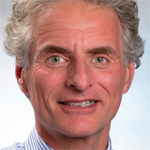
On the other hand, the Marshfield physicians share the same medical records no matter where they go. They open up their laptops and have all of the information available to them in the field.
A physician also has to be able to let others take at least some of the control. Local staff will be a determinant of how well the program works. “If you are going to be at some place once or twice a month, you have to be able to make sure patients can talk to you if needed,” says Dr. Winkler. “You depend more on your local people to see that messages are communicated, that abnormal results are brought to your attention, and refill needs are taken care of.”
When working in rural settings, many physicians complain about being isolated from other rheumatologists. Loneliness can be a problem in rheumatology where, as Dr. Goldberg notes, it is better to “share the ambivalence and indeterminance that is intrinsic to the effort.”
In both models, the ability to talk to colleagues in other affiliated clinics or hospitals has been greatly increased by modern technology. At Marshfield, there are dedicated fiber optic lines between the facilities, and the physicians are able to have face-to-face staff meetings while widely dispersed around Wisconsin. Although less formalized, PSN-affiliated physicians are also able to converse with their colleagues.
Overall, advances in technology have made many of the concerns easier to address. Mobile hotspots, smartphone apps, and tablet computers that let physicians access records from remote locations have lessened concerns about important information falling through the cracks. Skype and similar programs help the physician have face-to-face, if not hands-on, interactions with patients between trips to town.
Not for All
Circuit riding is not for every physician, however. “Not every doctor can be flexible in their practice, and that is a prerequisite for being successful in this setting,” says Dr. Winkler. “You have to be able to get along with patients, administrators, and staff. Not everyone can do that.”
There is also a need for flexibility in their personal lives. Rural areas lack some of the amenities seen in more populous areas. However, these are often offset by other plusses for the doctor and the family.
“If you want duck wonton at 11:00 at night, that isn’t going to happen,” says Dr. Goldberg. “But if you don’t want to lock your doors, want your kids to grow up riding bicycles on dirt roads and climbing trees, this is the place to be.”

